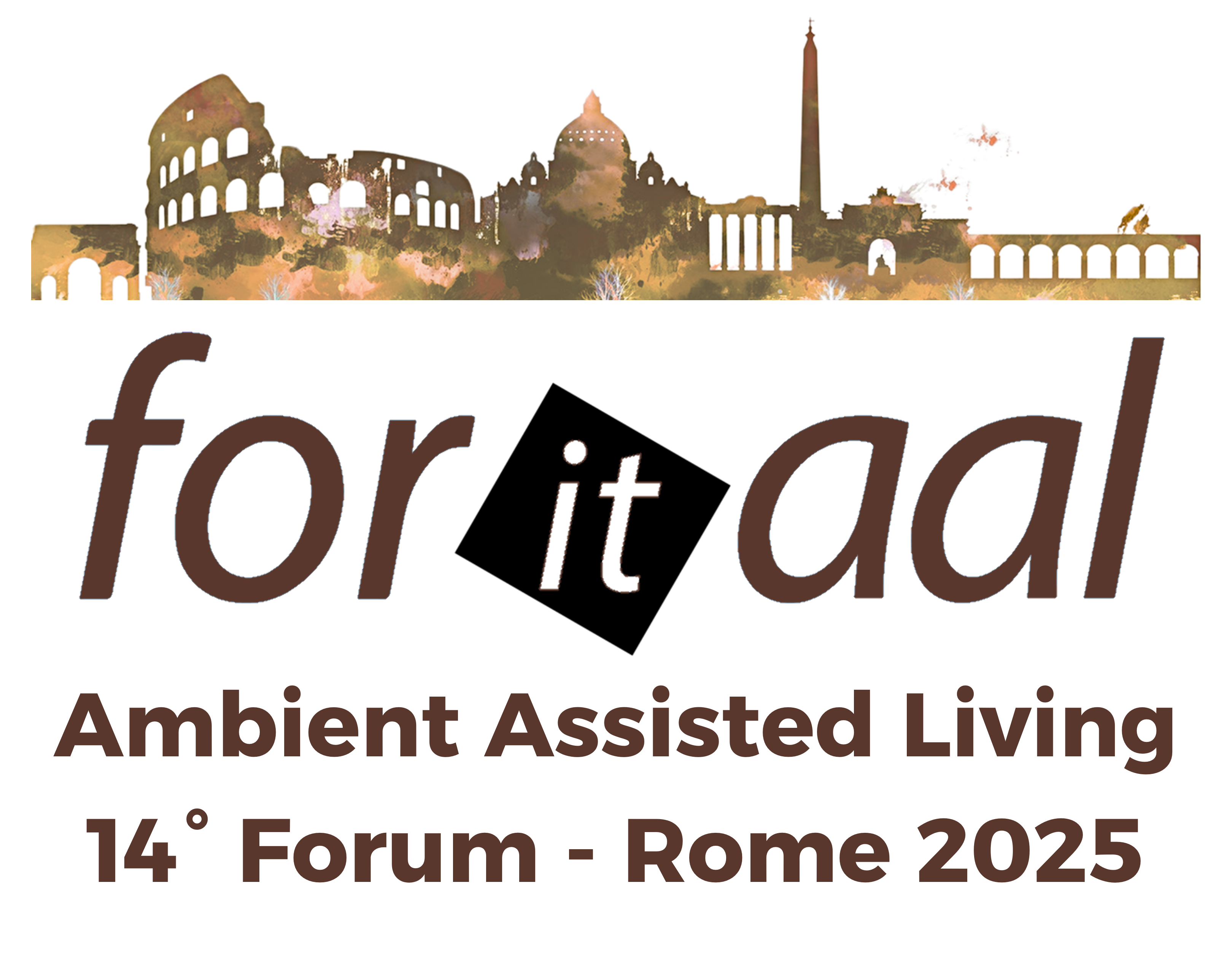Information for Authors
Instructions for Presenters
- Technical Sessions (regular papers): 10 minutes presentation + 2 minutes Q&A.
- Short Papers: 8 minutes presentation + 2 minutes Q&A.
- Language: Presentations are expected to be delivered in Italian. However, international speakers may choose to present in English. Slides may be prepared in either Italian or English.
- Please keep strictly within the time limits to ensure a smooth schedule; session chairs will moderate Q&A.
- Slides upload: presenters must upload the slides they intend to project no later than October 13, 2025 – 18:00.
Tuesday, Oct 14 — 09:30 – 11:00
Session 1: Wearables and Healthy Ageing
Chairs: Alessandra Sorrentino, Bruno Andò
A Sensorized Smart Insole for Flatfoot Based on a Flexible Electronics Substrate Encapsulated in a Customized 3D-Printed Shell for Pediatric Applications
A usability study on the adoption of wearable devices by healthy older adults
Linguistic coping strategies in online forums for multiple sclerosis: insights for peer support and digital wellbeing
Fall risk evaluation by means of AI integrated wearable devices
Evaluating Users’ Preferences regarding Technologies for Promoting Behavioral Change
Lisa: a web site designed for active and healthy ageing
Tuesday, Oct 14 — 16:00 – 17:30
Session 2: Smart Environments and Inclusive AAL Technologies
Chairs: Francesca Gasparini, Andrea Monteriù
Clustering-Based Detection of Unusual Daily Patterns in Elderly Care Using Non-Intrusive Sensor Data
Development and Validation of an E-Textile Parallel Plate Sensor for Grasp Pressure Measurement
Human-Centric Co-Housing for Ambient Assisted Living: Enhancing Resident Autonomy and Safety, and Caregiver Work Quality
Inclusive and Accessible Smart Cities through IoT and AI: The URBINFO Project
Robot Software Design for Mercury X1: An Ambient Assisted Living Case Study
Smart Home Technologies and Personal Autonomy of Elderly: A Review
Towards the Integration of Heterogeneous Sensor Data in AAL using the CoCo Cognitive Architecture
Azure Kinect Data Fusion for Enhancing Human Motion Tracking in Ambient Assisted Living: A Preliminary Approach[Short Paper]
FAMILIO 2025 – An Integrated Smart Home and Care Network System for Supporting Independent Living in Frailty Conditions & SIMILA: Beyond Compensation… [Short Paper]
Wednesday, Oct 15 — 10:00 – 11:00
Session 3: Sensors and Physiological Monitoring
Chairs: Lorena Rossi, Riccardo De Benedictis
Construct Validity of a New Pain Assessment Model: update on the WORDSforPAIN study
DeepPhysioNet: A Deep Physiological Feature Extraction Method for Affective State Recognition from Wearable Sensing
Integrating a Quantitative Approach to Deep Learning for Patient Monitoring
Muscle Fatigue Assessment in Healthcare Application by using Surface Electromyography: A Preliminary Transfer Learning Approach
OMNIAHEARTCARE: An Integrated Digital Health Platform for Personalized Management of Chronic Heart Failure
Wednesday, Oct 15 — 16:00 – 17:30
Session 4: Assistive Robotics, Cognitive Support, and Digital Wellbeing
Chairs: Alessandro Umbrico, Elisa Foderaro
A Simulation-First Framework to Validate Assistive Robots in Real Scenarios
Designing Personalised Cognitive Stimulation Service for the Elderly
Enhancing Inhibitory Control through Computerized Cognitive Training: Behavioral and Electrophysiological Evidence
From Vision to Grasp: a multi-device hand tracking system for robotic teleoperation in daily activities
Participatory Design of Socially Assistive Robots for Alzheimer’s Care
Promoting at-home motor training through Google MediaPipe-based exergaming: the ELEVATOR project
Silver Tourism: A Digital System for Sustainable and Accessible Tourism for Elderly and Vulnerable
Thursday, Oct 16 — 10:00 – 11:00
Session 5: Community-Based Care and Design Approaches
Chairs: Silvia Gola, Alessandro Leone
Co-designing community-based care systems: a service model for frail older adults living in public housing
Navigating complexity: the designer’s role in digital environment
ParticipaStory Design – Rethinking Inclusive Assistive Technologies through Narrative Experience
Sonification technologies as a support for the improvement of physical activity for the elderly
Understanding Social Sustainability at Work: Preliminary Insights from an Employee-Centered
Thursday, Oct 16 — 11:30 – 12:30
Session 6: Digital Health, Ethics, and Security
Chairs: Claudia Di Napoli, Paolo Pagliuca
Fall Risk Predictors Among Community-Dwelling Older Adults: A Multimodal Assessment
Internet of Medical Things: Enhancing Security through Machine Learning
Pre-Feasibility Study for the Design of a Protective Device for Falls Femur Fractures
Towards Generalized Radar-Based Indoor Activity Recognition: A Preliminary Study
Towards the Implementation of a Migratable AI System to Support Patient Rehabilitation
Elderly and Artificial Intelligence: an analysis of the ethical and regulatory framework relevant for Europe [Short Paper]
